With inter-level boarding schools, students can study continuously, develop life skills and nurture national cultural identity - key foundations to firmly protect the border.
Ms. Ho Thi Minh, Member of the National Assembly's Ethnic Council, Deputy Head of the Ethnic Committee of Quang Tri province: Nurturing the young generation in border areas
Mrs. Ho Thi Minh.
The Politburo has agreed on the policy of investing in the construction of primary and secondary boarding schools for ethnic minorities in 248 inland border communes. This is a strategic decision, not only creating conditions to improve people's knowledge and train local human resources, but also contributing to strengthening security and defense and strengthening solidarity in the border areas of the Fatherland.
The inland border communes are mostly inhabited by ethnic minorities, with difficult living conditions and poor transportation. These areas are often severely affected by harsh weather, long distances from schools, and lack of teachers and equipment. Many children drop out of school early to help their families or because they do not have the means to continue their education at a higher level.
Therefore, when multi-level boarding schools for ethnic minorities are built locally, students will have a continuous learning environment from primary to secondary school, with guaranteed accommodation, meals and activities in safe and orderly conditions. I believe that the boarding model not only solves the problem of transportation, but also creates conditions for students to access a comprehensive education program, practice life skills and acquire new knowledge. Thereby expanding opportunities to study at high school, college and university.
In the long term, this policy will contribute to forming a team of young intellectuals right in the border areas, helping localities proactively source qualified human resources, understand culture and society, understand customs and characteristics of the community, key factors to promote sustainable socio-economic development, and reduce regional disparities.
In addition to the educational significance, in my opinion, boarding schools are also a “bridge” connecting ethnic communities, contributing to preserving and spreading cultural identity, enhancing mutual understanding, and consolidating national solidarity. The concentrated learning environment also helps organize extracurricular activities, national defense and security education, foster love for the homeland and country, and enhance awareness of border protection more effectively.
From a security and defense perspective, taking care of the education of children in border areas is an “investment for the future” with strategic significance. When the young generation is educated, has knowledge and skills, they will become responsible citizens, attached to their homeland, contributing to building a strong “fence” of the Fatherland. At the same time, boarding schools in border areas are also a spiritual support, creating peace of mind for people to stay on their land, stay in their villages, and stabilize their lives.
I expect the Politburo’s policy to create strong changes in the most difficult areas of the country. However, in order for the policy to come into effect, it is necessary to synchronize solutions: Ensuring the quality of the teaching staff; investing in facilities and equipment; focusing on educational content suitable to regional characteristics; at the same time, mobilizing the participation of the whole society, especially the armed forces and local authorities in supporting, managing and operating the boarding school model.
It can be said that investing in education in border areas is not only to achieve social justice, but also to strengthen the "people's hearts and minds", creating a solid foundation for sustainable development, integration and national defense in the new situation.
Ms. Thanh Thi Ngoc An - Principal of Phan Thanh 1 Primary School (Lam Dong): Building a "home" to nurture intelligence and cultural identity
Ms. Thanh Thi Ngoc An.
As a teacher who grew up in an ethnic minority community, I deeply understand the silent dreams and concerns of students and parents in disadvantaged areas. They not only lack material things, but also suffer from many disadvantages in terms of opportunities for spiritual development and nurturing of the soul.
The most valuable point and also the soul of the policy is not in the scale of investment, but in creating real “homes” for students. “Home” here has a comprehensive meaning. It is not only a place with enough food, clothes, and a roof to protect from the rain and sun, but also a physically safe and mentally peaceful environment, where each child feels cared for, cared for and respected.
At boarding school, children will receive scientific health care and nutrition - something that many families do not have the conditions to do. The burden of the uncertain journey to school will be lifted, replaced by the leisure to focus on studying.
Moreover, the boarding model creates “golden time” for comprehensive development. Students have time and space to participate in sports, arts, reading, and club activities. This is the ideal environment to practice life skills, communication, teamwork, and nurture good qualities such as compassion, sharing, and independence.
Teachers do not simply teach, but also become second parents, companions, listeners and guides for children. Our goal is to build “happy schools” - where every day at school is a happy day for children.
In addition, these schools also carry a special and noble mission: to become a center for preserving and promoting the unique cultural identity of each nation. In the context of integration, preserving the original culture for the younger generation is an urgent task. Schools are the most ideal place to do that.
We can integrate folk songs, fairy tales, and local history into the curriculum; establish clubs, make traditional musical instruments, and invite artisans from the village to teach. Organizing traditional festivals right on campus will help children understand, love, and be proud of their ethnic culture. A child who understands their roots will have a solid spiritual foundation and be confident enough to reach out to the world without losing their own identity.
In order for these “homes” to be truly sustainable and spread their values, in my opinion, there needs to be a comprehensive implementation solution. First of all, it is necessary to build a team of teachers who are good at their profession, have a love for children, and understand the psychology and culture of the locality. There needs to be a specific training and development program for this team.
The educational program needs to be designed in an “open” and flexible way, allowing for the harmonious integration of national general knowledge and indigenous cultural values. It is necessary to tighten the warm human bond between the three parties: School - Family - Community, in which the important role of village elders, village chiefs and border guards is played, to together create a big embrace, protect and help children fly high and far.
Mr. Do Huy Khanh - National Assembly Delegate of Dong Nai Province: Policy with strategic vision
Mr. Do Huy Khanh.
Investing in education in border areas is a major policy, demonstrating the vision and humane nature of the Party and State. However, we need to look frankly at the inherent challenges that education here faces.
The current state of education in border areas still has many serious shortcomings. Many schools are makeshift and run-down, unable to withstand harsh weather conditions. Students have to travel dozens of kilometers through dangerous mountain forests, arriving at class tired, which directly affects their ability to absorb lessons.
The lack of teaching equipment has become a major obstacle in implementing the 2018 General Education Program, deepening the gap in quality compared to advantaged areas. Worryingly, the teaching staff is not only lacking in quantity but also facing countless pressures at work and in life. All these barriers are eroding the efforts of teachers and students, negatively affecting attendance rates and education quality, increasing the risk of falling back into poverty.
In that context, the Politburo’s policy of investing in the construction of 248 multi-level boarding schools for ethnic minorities is a strategic turning point and a comprehensive solution, demonstrating a change in thinking, shifting from solving individual problems to creating a comprehensive development model, suitable for the characteristics of border areas. Having students study, live and work together at school will completely solve the problem of roads. More importantly, it creates an ideal educational environment, where resources are concentrated to maximize efficiency.
The impact of the policy is multidimensional and has far-reaching implications. In terms of social and economic security, this is the most effective investment policy in human capital. When the burden of transporting children is shared, parents, especially women, will be freed from labor, and have more conditions to participate in production and develop the family economy.
In the long term, this policy is to “incubate” high-quality human resources locally. Students who are well-trained today will become the next generation of engineers, doctors, teachers, and key local cadres in the future. They are the ones who have a deep understanding of the culture and conditions of their homeland, the core driving force to change the socio-economic landscape, and successfully implement national target programs on sustainable poverty reduction.
Regarding national security and defense, investing in education in border areas is investing in the stability and solidity of the Fatherland's fence. A community with high education and a prosperous life will have firm faith in the leadership of the Party and State.
For a correct policy to be most effective, the implementation process needs to be drastic and synchronous. There needs to be a comprehensive plan, linking school construction with the development of transport infrastructure, electricity, water and the Internet.
Most importantly, there must be a special and outstanding mechanism and policy to attract, retain and develop the teaching staff, considering them as “soldiers” on the cultural front at the border. At the same time, it is necessary to promote socialization, mobilize the participation of the whole society, especially enterprises, to join the State in caring for the noble cause of educating people.
Raising people's knowledge helps people increase their resistance to sabotage activities and distorted arguments of hostile forces. A stable life helps people settle down and stay in the border areas. A stable border must be built on the foundation of prosperous villages and educated people. - Mr. Ong Do Huy Khanh.
Source: https://giaoducthoidai.vn/xay-truong-noi-tru-vung-bien-gioi-vun-tri-tue-vung-bien-cuong-post746494.html



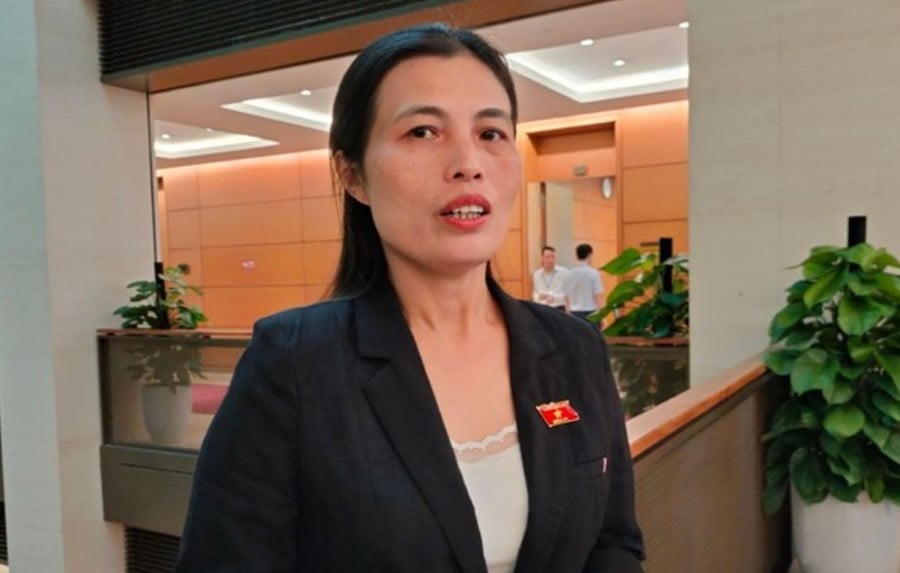

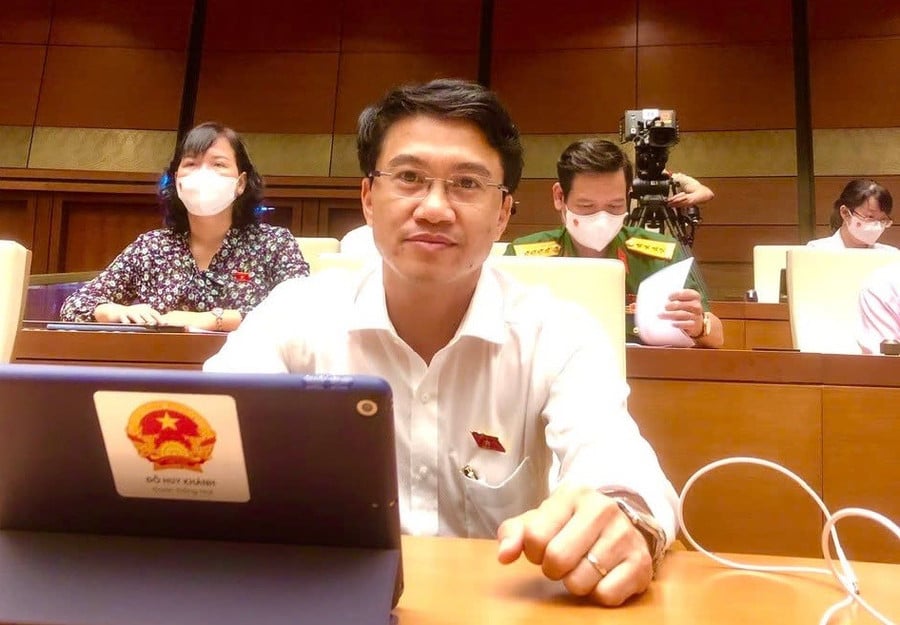




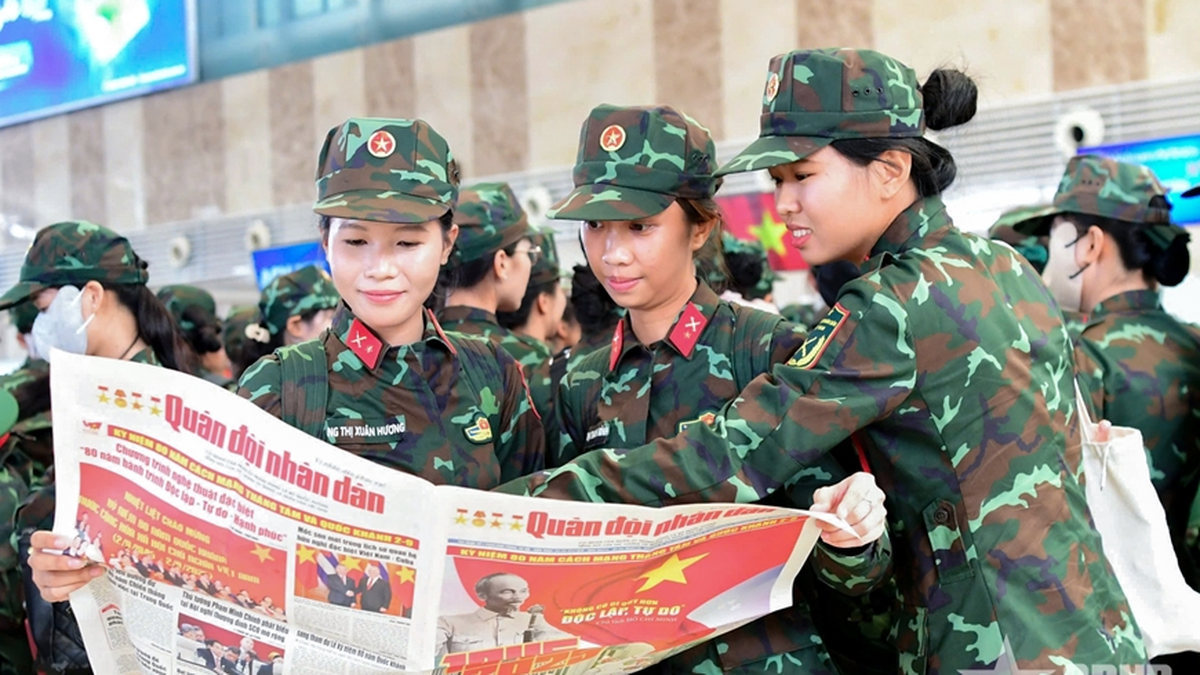
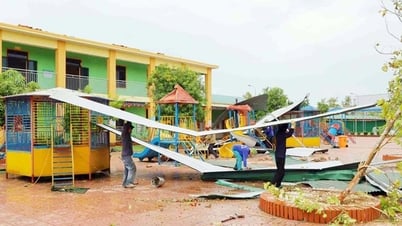

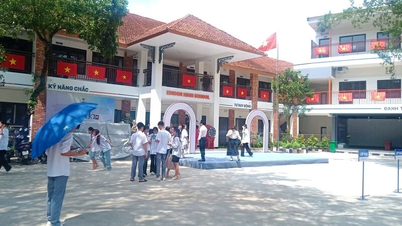

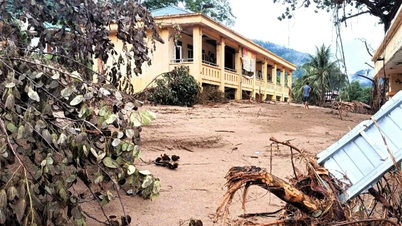







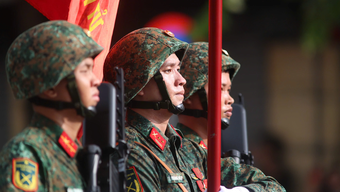


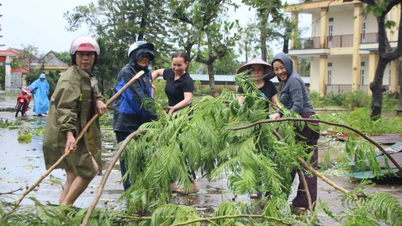
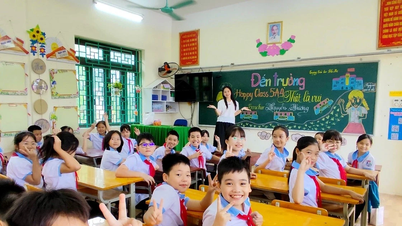
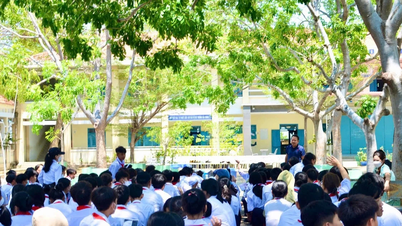
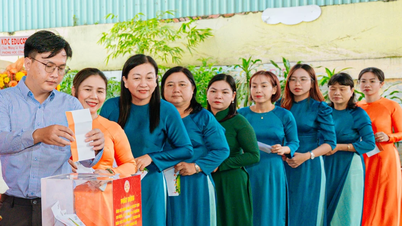
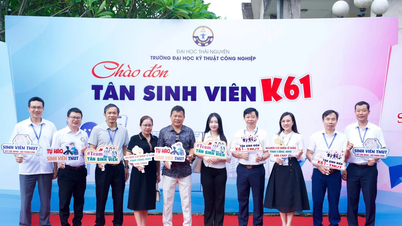
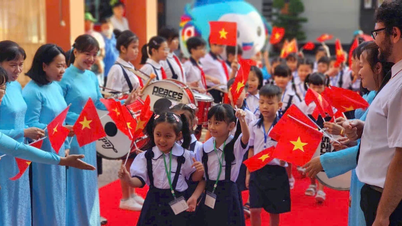

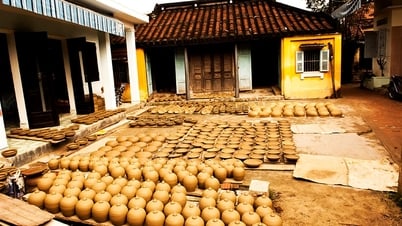











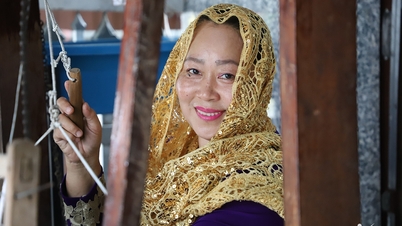











![[VIDEO] Petrovietnam – 50 Years of Keeping the Heritage Torch, Building National Energy](https://vphoto.vietnam.vn/thumb/402x226/vietnam/resource/IMAGE/2025/9/3/3f5df73a4d394f2484f016fda7725e10)

![[Photo] President Luong Cuong meets with Russian President Vladimir Putin](https://vphoto.vietnam.vn/thumb/402x226/vietnam/resource/IMAGE/2025/9/3/87982dff3a724aa880eeca77d17eff7f)
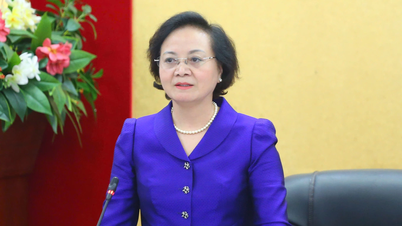

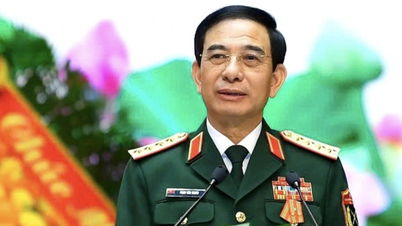
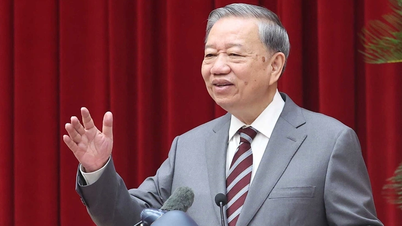
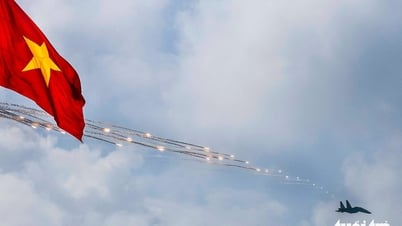



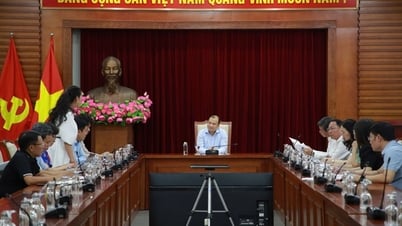
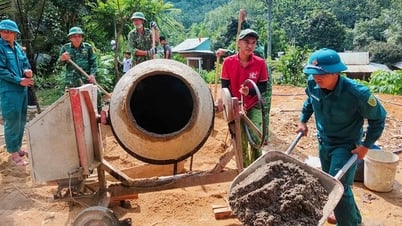

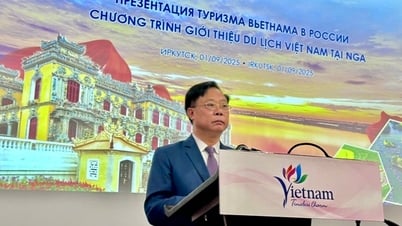







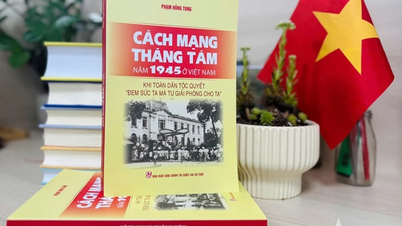

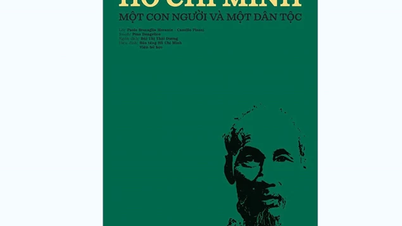

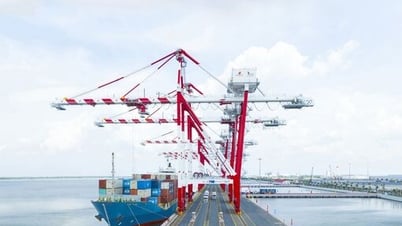

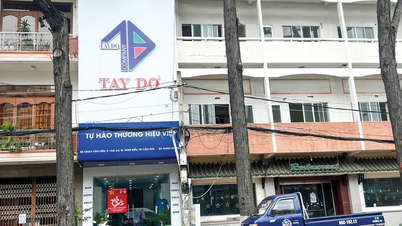

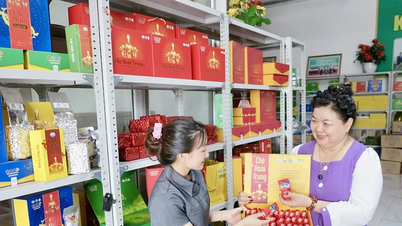

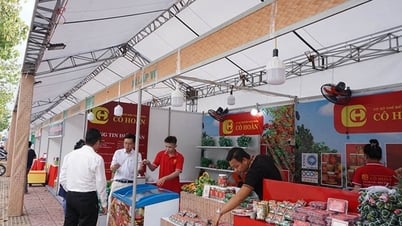




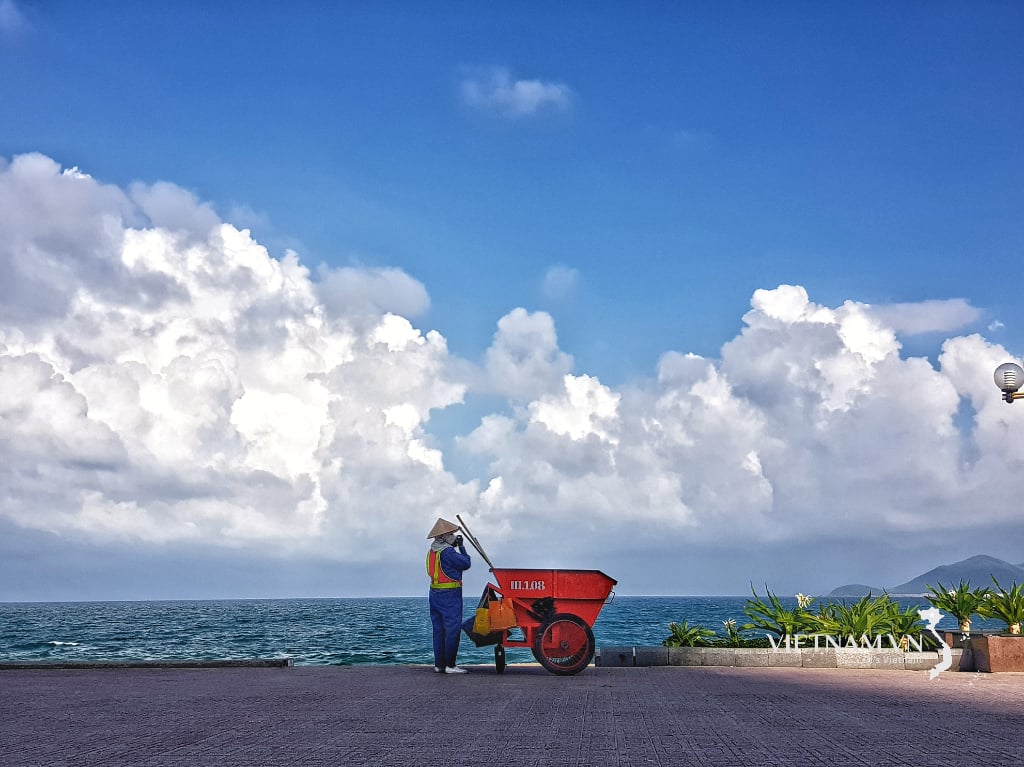



Comment (0)